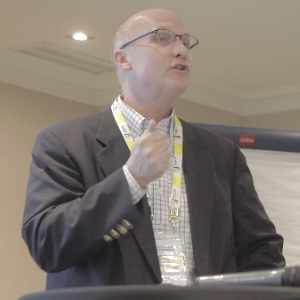Title : KCNT1 Epileptic encephalopathy– Phenotype, Genotype, Precision therapy
Abstract:
Epilepsy of infancy with migrating focal seizures (EIMFS) is a severe infant-onset epileptic encephalopathy, often caused by mutations in the KCNT1 gene, and standard treatments are ineffective.The cardiac anti-arrhythmic drug quinidine is a partial antagonist of KCNT1, making it a candidate drug for treatment of EIMFS. An existing in-vitro model has documented gain-of-function and quinidine responsiveness in recurring human KCNT1 mutations(Milligan C et al. Ann Neurol 2014). Since 2014, case reports of patients with EIMFS indicate asometimes dramatic, but not universal, reduction in seizures and developmental improvement following treatment with quinidine (Bearden D et al. Ann Neurol 2014; Mikati et al. Ann Neurol, 2015). An international KCNT1 registry is in place to gather structured data on EIMFS phenotypes, genotypes and treatment response.
During the presentation:
- The phenotypic and genotypic spectrum of EIMFS and KCNT1 will be reviewed, including strategies for and importance of early diagnosis.
- The pros and cons of quinidine use in EIMFS will be discussed, as well as steps for further study of the safety and efficacy of quinidine in EIMFSas a prototype of precision medicine in epilepsy.
- Both unique and generalizable clinical, genetic and study design features of EIMFS-KCNT1 and other epileptic encephalopathies will be highlighted.
Audience take away:
- The program will help clinicians more efficiently and confidently approach the diagnosis and treatment of epileptic encephalopathies in general, using EIMFS-KCNT1 as an example.
- The program will help researchers, including drug designers, see the opportunities and challenges in the study of epileptic encephalopathies and precision medicine, using EIMFS-KCNT1 as an example.
- The program will provide an example of the opportunities and challenges with re-purposing existing drugs for treatment of rare disorders.
- The program will facilitate discussion of how precision medicine clinical trials in epilepsy can be designed
- The program will facilitate discussion of managing patient and caregiver expectations in the era of potential, but unproven, precision therapy for epilepsy.




